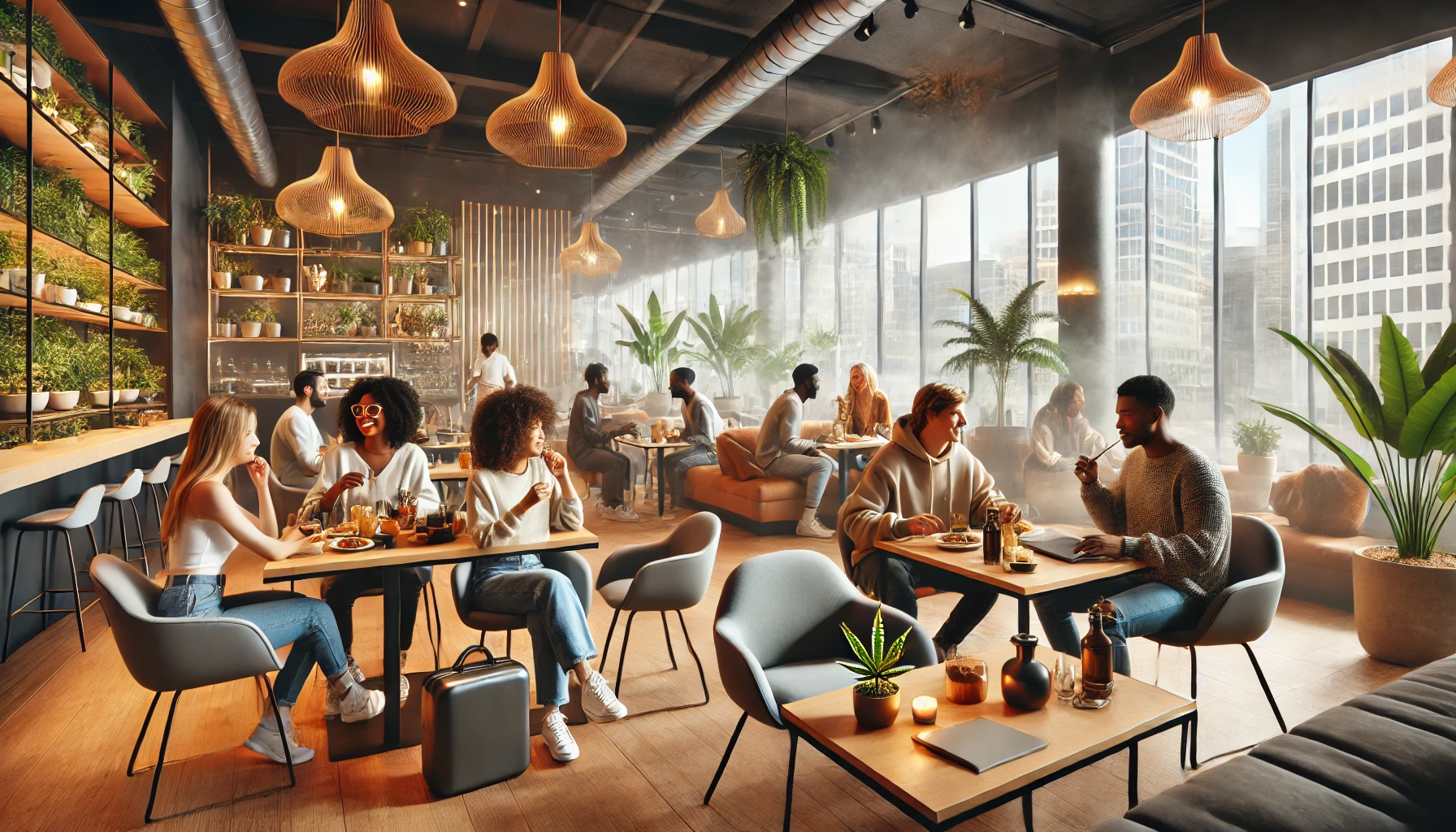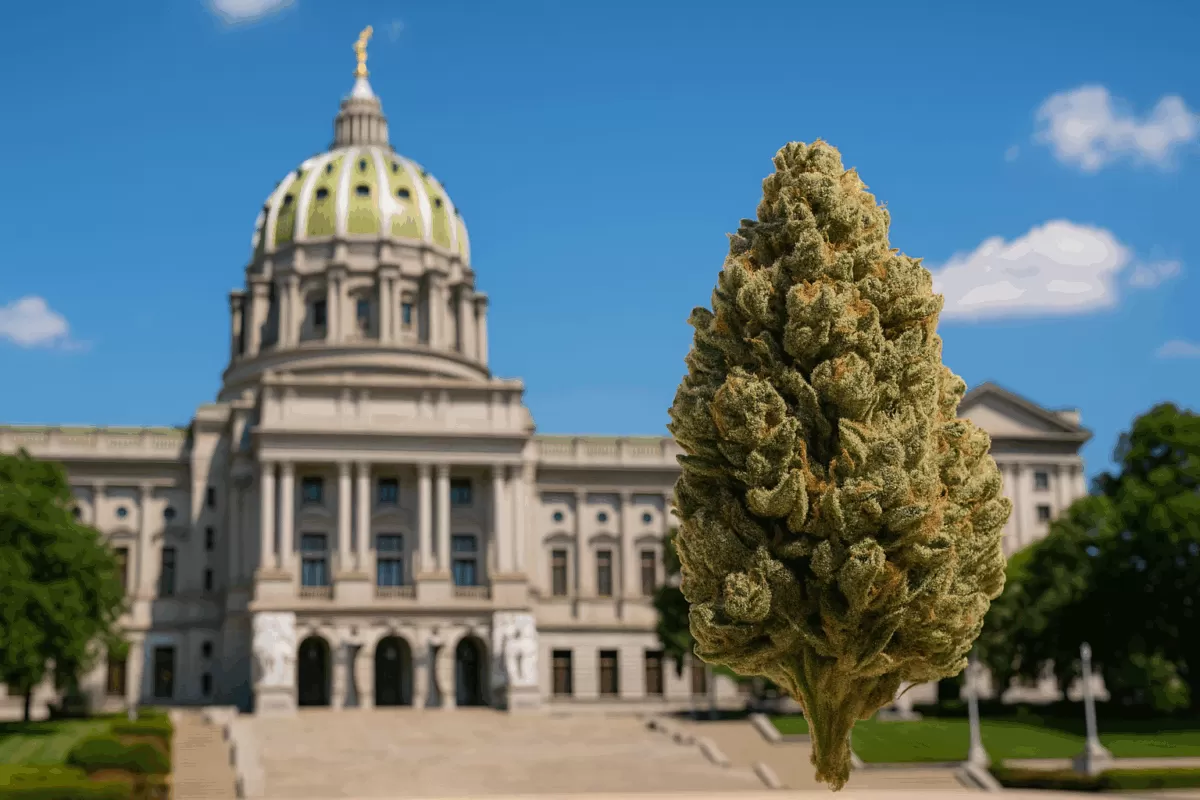Starting in 2025, California will usher in a new chapter for cannabis culture, with a law permitting the establishment of cannabis cafes across the state. These cafes will allow patrons to indulge in cannabis while enjoying food and beverages, similar to the iconic Dutch-style coffee shops that have long been popular in the Netherlands. The landmark bill, signed by Governor Gavin Newsom on September 30, 2024, is set to provide licensed cannabis businesses an innovative opportunity to blend dining with cannabis consumption.
A New Era for California’s Cannabis Industry
With the new law set to take effect on January 1, 2025, restaurants across California will have the option to serve cannabis alongside hot food and non-alcoholic drinks. Since the legalization of recreational cannabis in 2016, many dispensaries in the state have struggled to gain the upper hand over the thriving black market. Assemblyman Matt Haney, who authored the bill, emphasized the need for innovation to sustain the legal market.
“Our small cannabis businesses are fighting to compete against illegal sellers who don’t pay taxes or follow regulations,” Haney explained. “To ensure the legal cannabis market can survive and thrive, we must give these businesses the ability to offer the experiences and products consumers want.”
West Hollywood Leads the Charge
The push for cannabis cafes in California comes largely from progressive areas like West Hollywood, where cannabis lounges—spaces combining dispensaries with restaurants or bars—are already a reality. West Hollywood has long aspired to be a global hub for cannabis tourism, hoping to rival Amsterdam in popularity. With this new law, any licensed business in the state can adopt this model, operating without the risk of falling into legal limbo.
Health Concerns Spark Debate
While many in the cannabis industry are excited by the possibilities this new law presents, not everyone shares the same enthusiasm. Public health advocates have voiced concerns over the risks of smoking cannabis in dining environments. The American Cancer Society’s advocacy branch issued a statement warning that secondhand marijuana smoke poses health risks similar to secondhand tobacco smoke.
“Secondhand marijuana smoke contains many of the same carcinogens and toxic chemicals found in tobacco smoke,” the statement reads. Critics argue that allowing smoking in restaurants undermines decades of public health progress, particularly California’s strict smoke-free dining laws, established nearly 30 years ago.
Governor Newsom vetoed a previous version of the bill in 2023, citing similar health concerns. However, the revised law includes provisions to protect workers and patrons, such as allowing employees in cannabis cafes to wear masks and requiring businesses to inform staff about the risks of secondhand smoke exposure.
Balancing Business and Health
As California moves forward with cannabis cafe legalization, the debate over balancing public health and industry growth is likely to continue. Proponents argue that these cafes will help revitalize the legal cannabis market, which has struggled in the face of competition from illegal sellers. Critics, however, worry that the state’s progressive move toward normalizing cannabis consumption could roll back years of progress in creating smoke-free environments.
To address these concerns, the law includes specific provisions to ensure that cannabis cafes operate responsibly. Businesses will need to comply with stringent regulations around air quality, and local governments will retain the authority to impose additional restrictions as needed.
Looking Ahead
As the first U.S. state to legalize recreational cannabis and now one of the first to adopt Dutch-style cannabis cafes, California continues to set the standard for cannabis innovation. Supporters believe this law could open the door for a new wave of cannabis tourism, while opponents remain focused on its potential health impacts.
Ultimately, the success of California’s cannabis cafes will depend on their ability to offer a safe and enjoyable experience for consumers while navigating the ongoing public health debate. Whether this legislation will become a model for other states remains to be seen, but one thing is certain: the cannabis landscape in California is about to get a lot more interesting.












